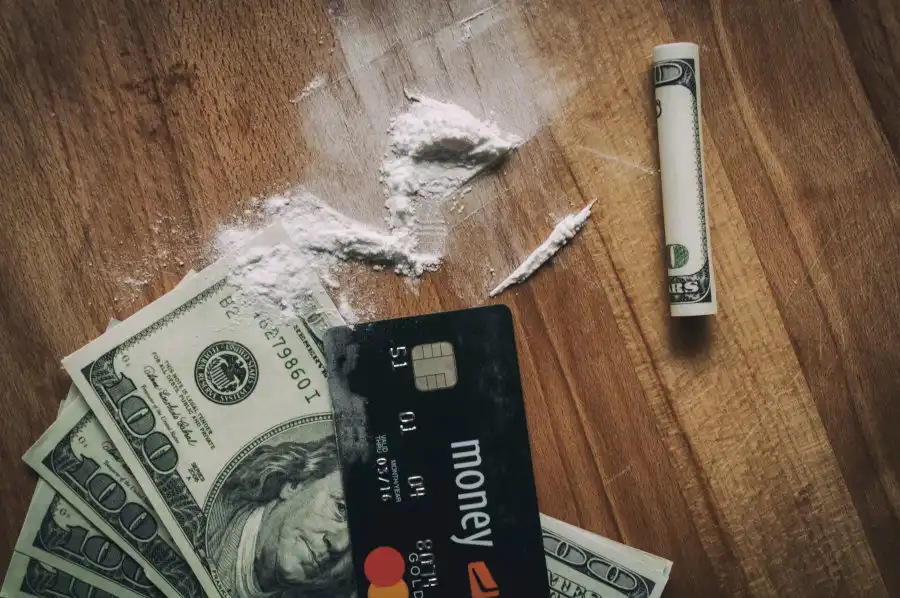Drug Crimes & Narcotics Charges in California - 2025 Guide
California has extensive drug and narcotics laws under the Health & Safety Code (HSC), covering everything from simple possession to large-scale manufacturing and distribution. If you're facing drug charges in the Bay Area—whether in Santa Clara County, Alameda County, Contra Costa County, or throughout Silicon Valley—understanding the charges, potential penalties, available defenses, and treatment alternatives is critical.
Since the passage of Proposition 47 (2014) and Proposition 64 (2016, adult-use cannabis), California's approach to drug crimes has shifted significantly. Many possession offenses are now misdemeanors, and diversion programs offer pathways to case dismissal. However, charges involving sales, transportation, or manufacturing remain serious felonies.
California Controlled Substances — The Five Schedules
California divides drugs into five schedules based on medical use, potential for abuse, and safety. The schedule affects how seriously the state views possession, sale, or manufacturing:
- Schedule I: High abuse potential, no accepted medical use (examples: heroin, MDMA/ecstasy, peyote, mescaline). Note: Cannabis was formerly Schedule I but is now regulated separately under Prop 64.
- Schedule II: High abuse potential, accepted medical use with restrictions (examples: cocaine, methamphetamine, opium, morphine, oxycodone, fentanyl).
- Schedule III: Moderate abuse potential (examples: anabolic steroids, ketamine, some barbiturates like pentobarbital).
- Schedule IV: Lower abuse potential (examples: prescription drugs like Xanax, Valium, Ambien).
- Schedule V: Lowest abuse potential (examples: cough suppressants with codeine).
Cannabis in 2025: Adult-use cannabis (Prop 64) is legal for possession up to 28.5 grams for individuals 21+. However, unlawful cultivation, sales without a license, or possession by minors can still result in criminal charges. Note that driving under the influence of marijuana remains illegal - see our marijuana DUI and drug-related DUI pages for more information.
Common Drug Charges in California
1. Possession of a Controlled Substance (HSC § 11350)
HSC § 11350 makes it unlawful to possess certain controlled substances (including heroin, cocaine, prescription drugs without a valid prescription) for personal use.
Key Changes Under Proposition 47:
- Simple possession is now typically a misdemeanor.
- Maximum penalty: 1 year in county jail (previously up to 3 years in state prison).
- Eligible defendants may qualify for diversion programs (PC 1000, Drug Court) that result in case dismissal upon treatment completion.
What the prosecution must prove:
- The substance was a controlled substance.
- The defendant was in unlawful possession.
- The defendant knew of its presence and nature.
- The defendant possessed a usable amount (not just residue).
Types of possession:
- Actual possession: Physically on your person.
- Constructive possession: In a location you control (car, home, storage).
- Joint possession: Shared with others (e.g., drugs found in a shared apartment).
2. Possession of Methamphetamine (HSC § 11377)
HSC § 11377 criminalizes possession of methamphetamine (and related stimulants). Like HSC § 11350, this is now typically a misdemeanor under Prop 47 for simple possession.
However:
- Possession for sale remains a felony.
- Manufacturing methamphetamine (HSC § 11379.6) is a serious felony.
- Possession in conjunction with firearms, large quantities, or evidence of sales intent will escalate charges.
3. Possession for Sale of Controlled Substances (HSC § 11351)
HSC § 11351 makes it illegal to possess controlled substances with intent to sell. This is a felony, carrying:
- Up to 4 years in state prison.
- Potential fines and probation.
- No eligibility for Prop 47 relief (remains a felony, not reduced to misdemeanor).
Evidence of intent to sell (circumstantial):
- Large quantities of drugs beyond personal use.
- Drugs packaged in separate baggies or containers.
- Large amounts of cash.
- Scales, measuring devices, packaging materials.
- Text messages, communications suggesting sales.
4. Sale or Transportation of Controlled Substances (HSC § 11352)
HSC § 11352 criminalizes selling, furnishing, transporting, importing, or giving away controlled substances. This is a felony with penalties ranging from:
- 3 to 9 years in state prison, depending on the substance and quantity.
- Enhanced penalties if sales occur near schools or involve minors.
- Many charges arise from undercover operations or sting operations conducted by law enforcement.
Facing drug possession or sales charges? The difference between a misdemeanor and a felony can change your life. Contact us immediately for a confidential case evaluation and defense strategy.
5. Manufacturing Controlled Substances (HSC § 11379.6)
HSC § 11379.6 makes it illegal to manufacture, compound, convert, produce, or process controlled substances—most commonly methamphetamine. This is a serious felony.
Penalties:
- Up to 7 years in state prison.
- Enhanced penalties if: large volumes are involved, someone is injured or killed, children are nearby, or manufacturing occurs near schools.
6. Possession of Drug Paraphernalia (HSC § 11364)
HSC § 11364 criminalizes possession of items used for drug use, including pipes, bongs, hypodermic needles, and cocaine spoons.
- This is a misdemeanor.
- Maximum penalty: 6 months in county jail.
- Often charged alongside possession offenses; may be dismissed as part of plea negotiations or diversion.
7. Under the Influence of a Controlled Substance (HSC § 11550)
HSC § 11550 makes it a crime to use or be under the influence of controlled substances like heroin, cocaine, methamphetamine, or certain prescription drugs.
- This is a misdemeanor.
- Maximum penalty: 1 year in county jail.
- Often charged during traffic stops, public intoxication incidents, or probation checks.
8. Cannabis Possession (HSC § 11357)
HSC § 11357 covers cannabis possession. Under Prop 64, adults 21+ may possess:
- Up to 28.5 grams of cannabis.
- Up to 8 grams of concentrated cannabis (e.g., hashish, edibles).
Illegal cannabis activity:
- Possession by individuals under 21 (infraction or misdemeanor).
- Possession on school grounds while school is in session.
- Unlawful cultivation (more than 6 plants per residence).
- Sales without a state license.
Consequences of a Drug Conviction Beyond Jail Time
A drug conviction in California can have far-reaching consequences beyond incarceration and fines:
- Permanent criminal record: Impacts employment, housing, professional licenses. Many drug convictions may be eligible for expungement after completing probation.
- Immigration consequences: Deportation, inadmissibility, denial of naturalization for non-citizens.
- Driver's license suspension: Mandatory for certain convictions.
- Denial of public benefits: Federal housing, financial aid for college, welfare benefits.
- Professional license revocation: Nurses, doctors, lawyers, teachers, and other professionals may lose licenses.
- Firearm restrictions: Felony convictions bar firearm ownership and possession.
- Probation violations: Drug testing requirements and treatment compliance are common probation conditions - learn more about probation violation defenses.
Drug Diversion and Treatment Alternatives
California recognizes that addiction is a public health issue. For many first-time, non-violent drug offenders, diversion programs offer an alternative to jail—treatment instead of incarceration.
1. Penal Code § 1000 (PC 1000) - Deferred Entry of Judgment
PC 1000 allows eligible defendants to plead guilty, complete a drug treatment program, and have the case dismissed upon successful completion.
Eligibility:
- No prior drug convictions.
- Non-violent offense (simple possession, under the influence).
- No concurrent felony charges.
- Prosecutor and court approval.
Benefits:
- Case dismissed upon completion.
- No conviction on record.
- Avoids jail time and long-term consequences.
2. Proposition 36 - Substance Abuse and Crime Prevention Act
Prop 36 (2000) allows non-violent drug offenders to receive treatment instead of incarceration. Successful completion can result in case dismissal.
3. Drug Court
Drug Court programs offer intensive supervised treatment, regular drug testing, and court monitoring. Completion can result in reduced charges or dismissal.
4. Probation with Treatment Conditions
For some defendants, probation with mandatory drug treatment, counseling, and testing may be an alternative to jail time.
Eligible for diversion? Don't miss your chance at case dismissal. We'll evaluate your case, negotiate with prosecutors, and guide you through every step of the treatment process.
Common Legal Defenses to Drug Charges
A skilled criminal defense attorney can challenge drug charges on multiple grounds. Some common defenses include:
- Fourth Amendment Violations (Illegal Search and Seizure): Police violated your constitutional rights during a search, making evidence inadmissible.
- Invalid Warrant: The search warrant was based on false statements or lacked probable cause.
- Lack of Knowledge: You didn't know the drugs were present (e.g., in a borrowed car, shared residence).
- Not Your Drugs: The controlled substance belonged to someone else; constructive possession cannot be proven.
- Not a Controlled Substance: Lab analysis proves the substance was not illegal (e.g., look-alike drugs, legal substances).
- Insufficient Quantity: Only drug residue, not a "usable amount," was found.
- Valid Prescription: You had a lawful prescription for the controlled substance.
- Entrapment: Law enforcement induced you to commit a crime you wouldn't have otherwise committed.
- Crime Lab Errors: Contamination, mishandling, or errors in testing procedures.
- Chain of Custody Issues: Evidence was mishandled, compromised, or cannot be reliably traced.
Time is critical: Evidence can be lost, witnesses' memories fade, and surveillance footage may be erased. Contact an experienced drug defense attorney immediately to preserve your rights and build the strongest possible defense.
Why Choose Our Bay Area Drug Defense Firm
If you're facing drug charges in Santa Clara County, Alameda County, Contra Costa County, or anywhere in the Bay Area, Ginny Walia Law Offices provides:
- 20+ years of experience defending drug crimes—from simple possession to large-scale manufacturing and sales.
- Expertise in Prop 47 and diversion programs: We've successfully secured PC 1000, Prop 36, and Drug Court placements for countless clients.
- Aggressive defense strategies: Challenging illegal searches, filing suppression motions, negotiating charge reductions.
- Local court knowledge: Deep familiarity with Bay Area prosecutors, judges, and court procedures.
- Personalized representation: We understand the immigration, employment, and personal consequences you face—and fight to minimize them.



